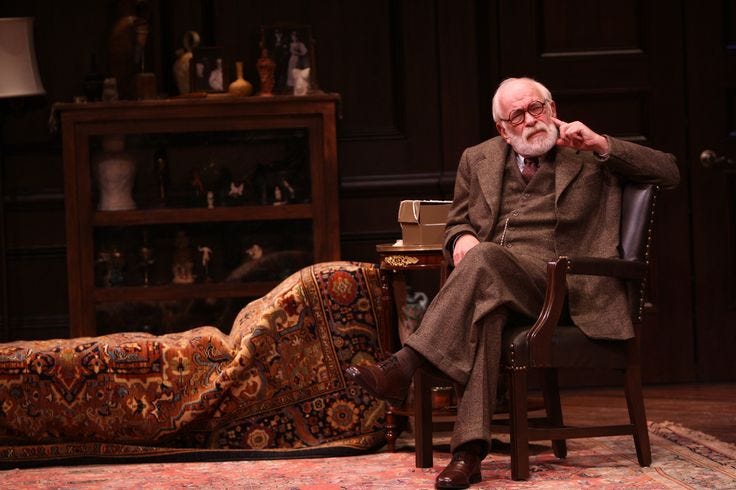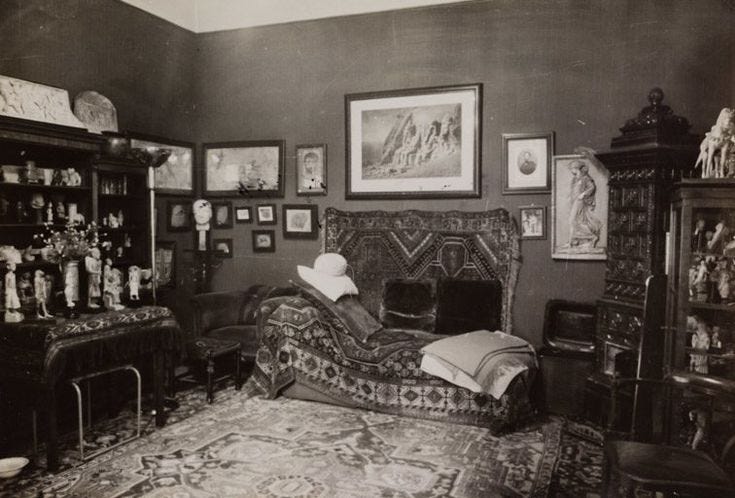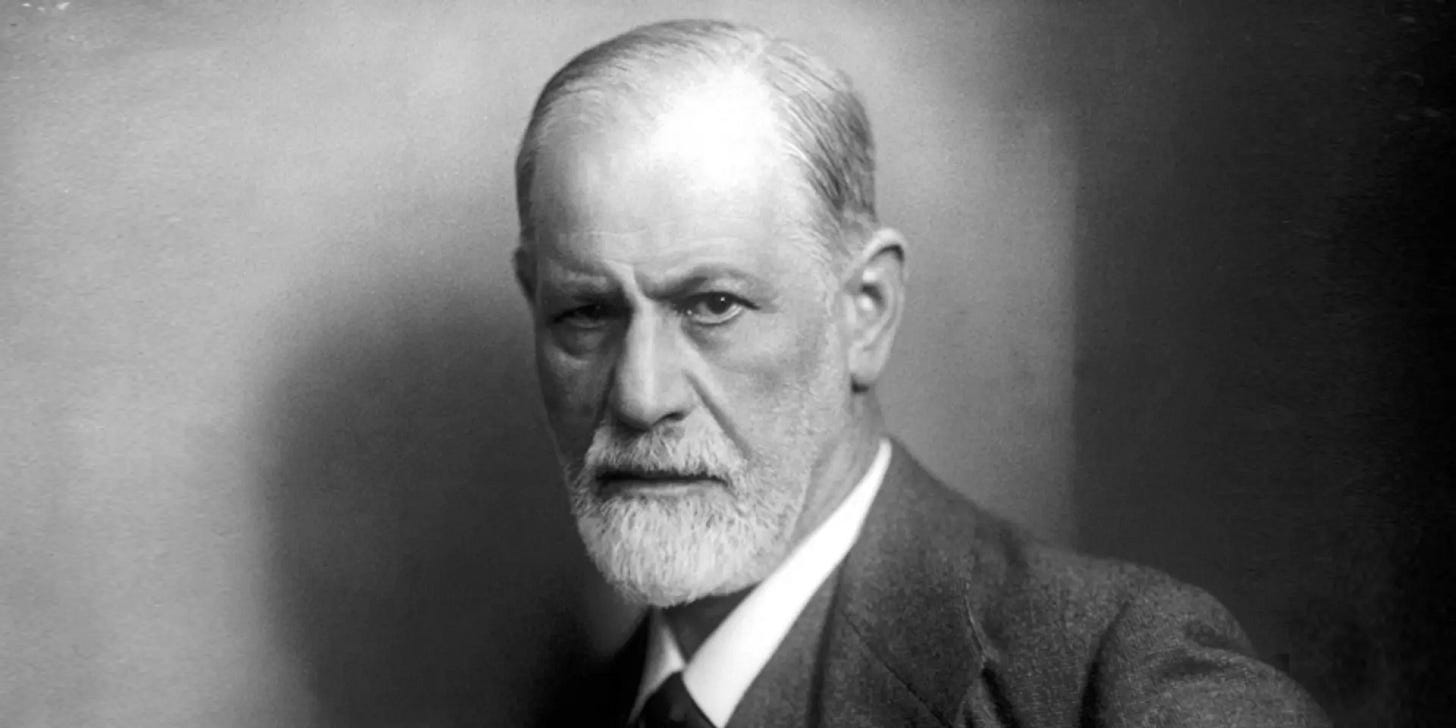The Man Who Mapped the Mind
Sigmund Freud
In the smoky coffeehouses of Vienna, amidst the clatter of chess pieces and the hum of intellectual fervor, one man dared to plumb the depths of the human psyche.
He was Sigmund Freud (1856–1939), a neurologist whose ideas reshaped how we understand ourselves. He wasn’t just a scientist — he was a storyteller, weaving theories that changed how we see ourselves.
His work was bold, controversial, and deeply influential.
A Life Shaped by Ambition and Exile
Born in Freiberg, Moravia (now Czech Republic), on May 6th, Freud grew up in a Jewish family during a time of social change. Vienna, his adopted home, was a crucible of art, science, and ideas — think Gustav Klimt’s golden swirls and Mahler’s haunting symphonies.
Freud trained as a doctor, but his curiosity veered toward the unseen: the mind’s hidden currents. By his 30s, he was crafting a new discipline, psychoanalysis, while battling personal demons, including a cocaine habit and financial strain.
His life wasn’t all cigar smoke and leather couches.
Freud faced fierce criticism, especially as his theories on sexuality shocked Victorian sensibilities. When the Nazis annexed Austria in 1938, he fled to London, his health ravaged by cancer.
Yet even in exile, he wrote, smoked prodigiously, and shaped modern thought until his death in 1939.
Freud’s genius lay in his ability to map the invisible. He proposed that the mind is like an iceberg: only a fraction is visible (the conscious), while the vast bulk (the unconscious) drives our desires, fears, and actions.
He introduced the famous id, ego, and superego model:
Id: Our raw instincts, seeking pleasure and avoiding pain.
Ego: The mediator, balancing desire with reality.
Superego: The inner critic, enforcing moral codes.
Freud believed childhood experiences shape who we become, and his Oedipus complex theory, about unconscious desires for our parents, sparked endless debate. He called dreams the royal road to the unconscious, revealing deep-seated emotions.
Ever wonder why we obsess over 'inner child' healing or analyze our dreams? That’s Freud’s shadow, lingering in therapy sessions and pop psychology.
The Art of Listening
Freud’s method was as radical as his theories. Psychoanalysis wasn’t about prescribing pills or dissecting brains — it was about listening. Patients reclined on his famous couch, free-associating while Freud deciphered their words like a detective.
He believed repressed memories and desires, once unearthed, could heal neuroses.
This wasn’t just therapy, it was a cultural revolution. Freud gave voice to the idea that our stories, our fears, loves, and traumas matter.
His consulting room became a confessional for the secular age.
His Legacy — Brilliant and Flawed
Freud’s ideas transformed psychology, literature, and even marketing. Writers like James Joyce and Virginia Woolf explored his insights in their work. Movies, especially psychological thrillers, often draw from Freudian themes.
Even advertising was influenced by his nephew Edward Bernays, who used psychology to shape consumer habits.
But Freud had his critics. His theories were often based on limited evidence, and his focus on sexuality made some uncomfortable. Carl Jung rejected Freud’s ideas, favoring a more spiritual view of the mind. Feminists criticized Freud for concepts like 'penis envy', calling them outdated.
Despite controversy, Freud’s ideas pushed the field of psychology forward.
Today, we have brain scans, medications, and neuroscience, but Freud’s core idea remains powerful: We are mysteries to ourselves. His work encourages us to reflect on our thoughts, emotions, and patterns, revealing deeper truths.
Freud wasn’t perfect, but he was a pioneer, sketching maps where none existed. His theories may evolve, but his curiosity about the human mind is something we can all relate to.
Next time you overanalyze a dream or a slip of the tongue, remember Freud — he didn’t invent the unconscious, but made us listen to it.
Being entirely honest with oneself is a good exercise.





Freud was a true pioneer of Psychiatry. He developed psycho- analysis, a type of psychotherapy, a treatment that is recognised nowadays to be underutilised in many Mental Health diagnoses.
The modern view of Borderline Personality disorder is based on childhood trauma. He and Carl Jung famously met in New York and it did not go well. Jung stayed in the US and Freud returned to Europe, both continents still somewhat shaped by this.
A Harvard Law Professor, Jed Rubenfeld, wrote an interesting semi fictional murder mystery that involved the meeting of the two great minds in his book ‘The interpretation of Murder’.